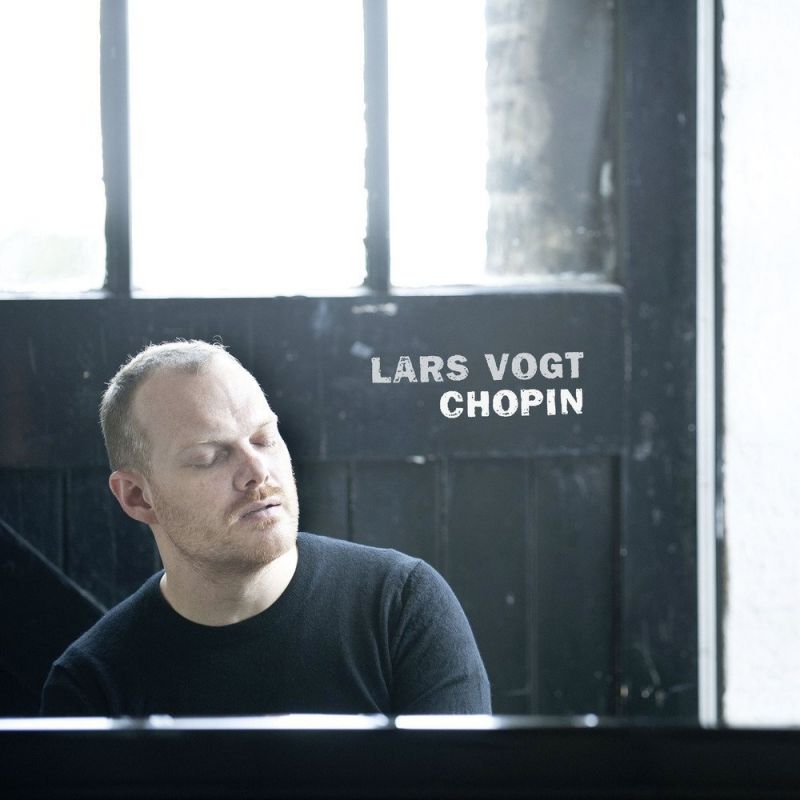CHOPIN Nocturnes
View record and artist detailsRecord and Artist Details
Composer or Director: Fryderyk Chopin
Genre:
Instrumental
Label: Avi
Magazine Review Date: 04/2015
Media Format: CD or Download
Media Runtime: 80
Mastering:
DDD
Catalogue Number: AVI8553267

Tracks:
| Composition | Artist Credit |
|---|---|
| (4) Ballades, Movement: No. 1 in G minor, Op. 23 |
Fryderyk Chopin, Composer
Fryderyk Chopin, Composer Lars Vogt, Piano |
| 2 Nocturnes |
Fryderyk Chopin, Composer
Fryderyk Chopin, Composer Lars Vogt, Piano |
| 2 Nocturnes Op 27 |
Fryderyk Chopin, Composer
Fryderyk Chopin, Composer Lars Vogt, Piano |
| (4) Scherzos, Movement: No. 1 in B minor, Op. 20 (1831-32) |
Fryderyk Chopin, Composer
Fryderyk Chopin, Composer Lars Vogt, Piano |
| Sonata for Piano No. 2, 'Funeral March' |
Fryderyk Chopin, Composer
Fryderyk Chopin, Composer Lars Vogt, Piano |
| Nocturnes, Movement: No. 20 in C sharp minor, Op. posth |
Fryderyk Chopin, Composer
Fryderyk Chopin, Composer Lars Vogt, Piano |
| Nocturnes, Movement: No. 21 in C minor (1837, pub 1938) |
Fryderyk Chopin, Composer
Fryderyk Chopin, Composer Lars Vogt, Piano |
Author: Harriet Smith
The First Ballade sets the scene: it’s a little too ponderous and climaxes sound a touch laboured, rather than emerging inevitably from the music as they do with Zimerman or, even more strikingly, Argerich in her unfettered 1959 radio recording. It’s almost as if Vogt has spent too much time thinking about this music rather than living it, so it can come across as over-intellectualised. There are times in the Nocturnes where I wanted more bel canto and he lacks the sense of inevitability that you find with Pires, particularly in the first of Op 9, though the second of the set is more convincing.
The First Scherzo doesn’t lack for rhetoric, particularly in the fearsome closing moments; but, compared to Pogorelich (admittedly extreme) or Rubinstein, Vogt seems somewhat buttoned-up. As for the Sonata, right from the opening I hanker after a greater sense of drive. Though Vogt is eager to bring out the work’s rapt moments, the Scherzo is tame indeed compared to Rachmaninov (but then so is everyone else) or, among modern-day pianists, Freire. And though you can make out every note in the finale, which is more than can be said for Rachmaninov, it lacks the sinister edge of Hamelin and, supremely, Cortot.
I’m sorry not to be more enthusiastic about this: it’s not that Chopin and Vogt are ill-matched but more that the relationship between pianist and composer needs time to mature.
Discover the world's largest classical music catalogue with Presto Music.

Gramophone Digital Club
- Digital Edition
- Digital Archive
- Reviews Database
- Full website access
From £8.75 / month
Subscribe
Gramophone Full Club
- Print Edition
- Digital Edition
- Digital Archive
- Reviews Database
- Full website access
From £11.00 / month
Subscribe
If you are a library, university or other organisation that would be interested in an institutional subscription to Gramophone please click here for further information.




